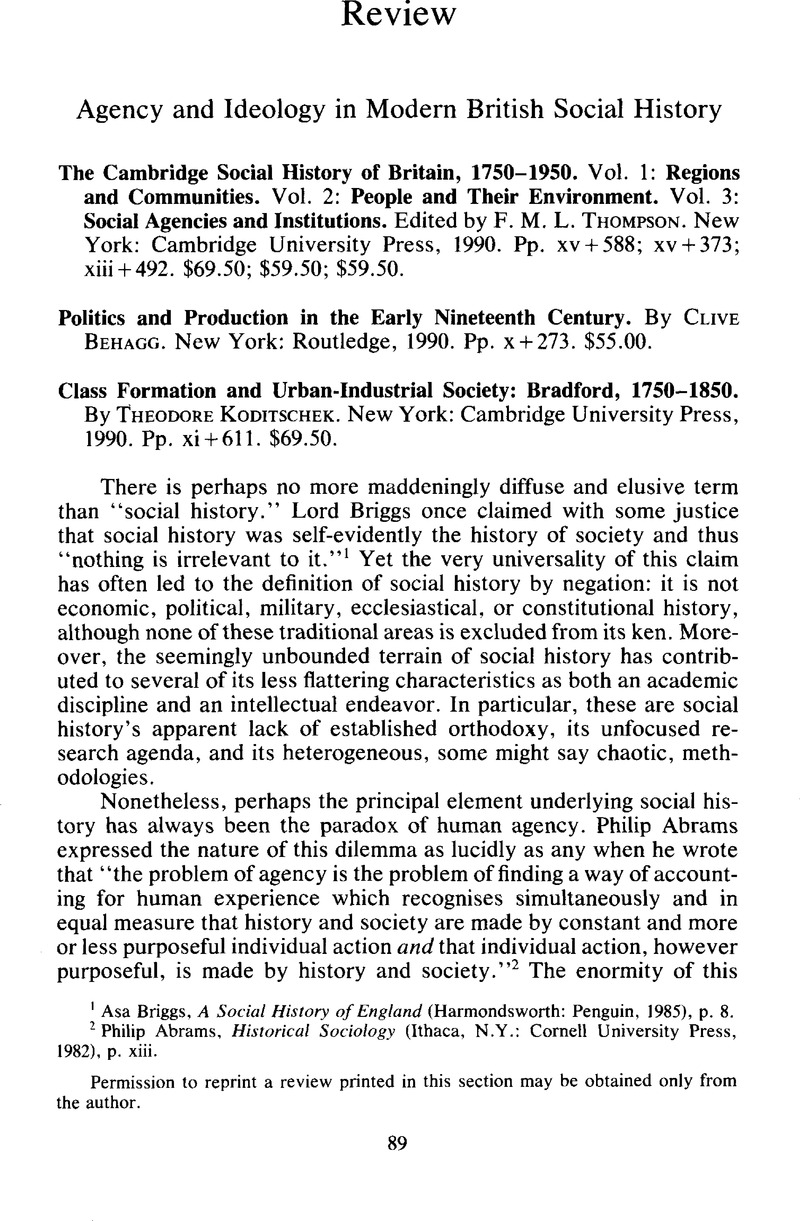No CrossRef data available.
Article contents
Agency and Ideology in Modern British Social History - The Cambridge Social History of Britain, 1750–1950. Vol. 1: Regions and Communities. Vol. 2: People and Their Environment. Vol. 3: Social Agencies and Institutions. Edited by F. M. L. Thompson. New York: Cambridge University Press, 1990. Pp. xv + 588; xv + 373; xiii + 492. $69.50; $59.50; $59.50. - Politics and Production in the Early Nineteenth Century. By Clive Behagg. New York: Routledge, 1990. Pp. x + 273. $55.00. - Class Formation and Urban-Industrial Society: Bradford, 1750–1850. By Theodore Koditschek. New York: Cambridge University Press, 1990. Pp. xi + 611. $69.50.
Published online by Cambridge University Press: 10 January 2014
Abstract

- Type
- Review
- Information
- Copyright
- Copyright © North American Conference of British Studies 1992
References
1 Briggs, Asa, A Social History of England (Harmondsworth: Penguin, 1985), p. 8Google Scholar.
2 Abrams, Philip, Historical Sociology (Ithaca, N.Y.: Cornell University Press, 1982), p. xiiiGoogle Scholar.
3 See, e.g., Field, Geoffrey, “Perspectives on the Working-Class Family in Wartime Britain, 1939–1945,” International Labor and Working-Class History, no. 38 (Fall 1990), pp. 3–28Google Scholar.
4 Edwards, P. K., Conflict at Work: A Materialist Analysis of Workplace Relations (Oxford: Basil Blackwell, 1986)Google Scholar, usefully surveys the relevant material.




